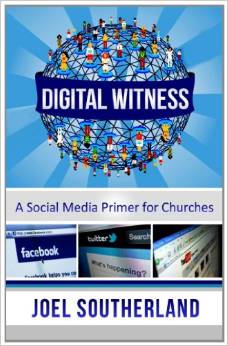
The Southern Baptist Convention is underway. The Social Media changes that have come this year are very evident. Last year when I led TalkSBC we were ground breaking in the use of video and Social Media to cover the convention. We tweeted, posted, blogged, Youtubed, and Ustreamed when no one else was.
This year – that has all changed. BP has released it’s official Twitter hashtag (#sbc20ll or #sbc11 ) and the Social Media coverage is taking care of itself. With all of the Tweeting going on what can the SBC learn (and pastors too!)?
1. Let the conversation take place
It seems that in the past that SBC leaders were afraid of the conversation. Nothing was officially stated but when you spoke with leaders you had the feeling they were hoping to stifle the conversations taking place. It felt as if the philosophy was to supress the conversation and it would go away. So, entities issued anti-blogging guidelines and employees were told to stay off Social Media. Maybe if the conversations were ignored they would go away.
They did not go away.
They are not going away.
You should not want them to go away.
When the conversations take place you find out what people are really thinking.
The SBC and pastors should want the conversation to take place about the convention and about your church. When the conversations take place you find out what people are really thinking. You discover their frustrations. Joys. Desires. Fears. Concerns. Likes. Dislikes. You find out who has a following and who doesn’t. You get to listen to all walks and stations in life. You hear from the young, the old, the retired, the upstart, the newbie and the oldie.
Let the conversation happen. It’s beneficial.
2. Listen to the conversation
You have to listen. Pastors and leaders cannot ignore the conversations. You have to pay attention. Take notes. Think of Social Media conversations as the Textus Receptus of our day! It’s not one tweet that is going to make you change – its the culmination of all those tweets that are going to make you pay attention.
I’m not talking about a knee-jerk reaction to random comments. Just listen. Things are being said. Feelings are being shared. In the midst of all that you may discover something that needs fixed. You may discover a great idea. You may discover an innovator that needs to be listened to and heeded.
Pay attention.
3. Respond to the conversation
How great would it be if after the convention a study was put together of all that was being said on Twitter (Social Media) and a study was done on what Southern Baptists feel need to be changed / done to make our Convention great again?
What if SBC leaders of all entities responded to tweets and comments in the days ahead? What if they answered questions? What if they responded to criticism? What if they celebrated alongside? What if they made phone calls? Wrote letters? Invited people to lunch? Listened? Corrected? Affirmed?
If that happened the feelings among Southern Baptists would immediately change. No one thinks they have all the answers – they just want the comments they have to be heard.
Let the conversation happen.
Listen to the conversation.
Respond to the conversation.
Pastor: You should follow the same plan. Search Social Media to find out what is being said about your church. Encourage the conversation. Listen as your members speak. Respond to what they are saying.
It’s a simple plan that could reap great benefits.











